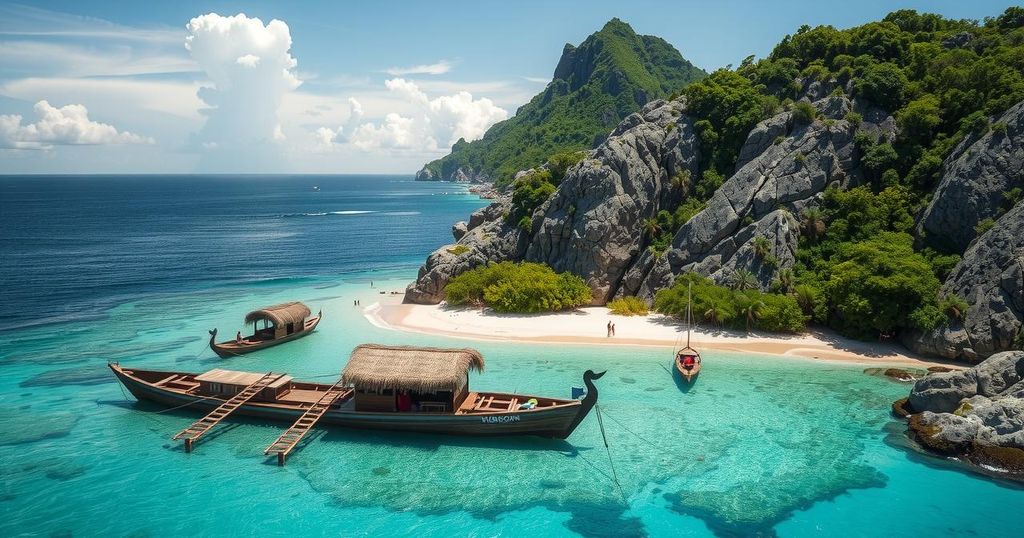The RECOVER project, funded with $1.2 million, aims to support climate change adaptation in Mauritius, Maldives, and Fiji. Researchers from the University of Waterloo and local partners will develop strategies addressing climate vulnerabilities, focusing on enhancing access to vital resources and infrastructure. With a focus on innovative, nature-based solutions, the project strives for sustainable development and resilience within these small island communities.
The RECOVER project, spearheaded by researchers from the University of Waterloo in collaboration with institutions in Mauritius, the Maldives, and Fiji, has been awarded $1.2 million to enhance climate change adaptation strategies in vulnerable island communities. Despite contributing less than one percent to global greenhouse gas emissions, these regions are disproportionately affected by climate change. Through this initiative, the researchers aim to identify each island’s specific climate risks and develop scalable solutions to improve access to resources such as food, water, energy, and healthcare.
Dr. Simron Singh, the project lead, emphasized the privilege of working with such communities, noting the profound impact of witnessing the devastation caused by the 2004 Indian Ocean tsunami. The RECOVER project will establish innovation hubs within these islands, focusing on nature-based solutions to foster resilience against climate-induced challenges.
Dr. Shazla Mohamed from The Maldives National University highlighted the project’s potential to secure a reliable water supply for Male’ City, home to over 40 percent of the Maldives population. Dr. Shawkat Ali from The University of Fiji underscored the project’s aim to address livelihood losses related to coastal biodiversity, enhancing community engagement to build resilience through coastal and water management strategies.
The RECOVER initiative operates under a framework that likens island economies to living organisms. By examining their resource metabolism, such as energy and water use, the project seeks to reconfigure these systems to promote sustainable practices, ultimately fostering a transition towards equitable resource utilization and nature-based models.
Launched in September 2023 under the UK-Canada Climate Adaptation and Resilience research program, RECOVER will develop interventions to enhance infrastructure stability and foster a long-term development strategy through collaborative partnerships in the region.
Climate change poses a significant threat to small island nations, which, despite their minimal contribution to global greenhouse gas emissions, experience severe impacts. The RECOVER project aims to address these challenges through collaborative research and innovative solutions tailored to the specific needs of communities in Mauritius, Maldives, and Fiji. It targets critical areas, including resource accessibility and sustainability, to support the resilience of vulnerable populations against climate-related effects. This initiative is particularly vital as island communities often lack the infrastructure and resources necessary to adapt effectively to ongoing climate disturbances. The amalgamation of local knowledge and scientific research is aimed at creating comprehensive strategies that incorporate nature-based solutions to enhance climate resilience and mitigate social inequities.
In conclusion, the RECOVER project represents a concerted effort to support small island nations in addressing the pressing challenges posed by climate change. By fostering partnerships and conducting interdisciplinary research, the initiative not only aims to create sustainable solutions but also strives to empower vulnerable communities. Through targeted interventions and a focus on nature-based strategies, the project aspires to offer lasting benefits in resource management, infrastructure resilience, and community adaptation across the islands involved.
Original Source: uwaterloo.ca






